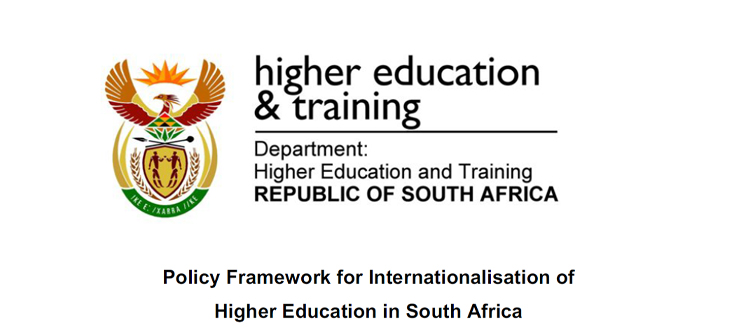About
Implementation of the South African Policy Framework for Internationalisation of Higher Education
Considering the promulgation of the South African Policy Framework for Internationalisation of Higher Education on 6 November 2020, the office of Strategic Partnerships and Collaborations, and the University at large, has been seized with developing strategic documents and initiatives to cultivate and nurture institutional programmes to respond to the call of internationalisation.
The policy framework obligates all institutions of higher learning to comprehensive internationalisation that permeates all facets of their core business and impresses upon all academic leaders to embrace scientific diplomacy, which is described as the 'art and skill of managing good relations with all international organisations and institutions'.
It endeavours to create synergies across the spectrum of Higher Education in South Africa with all initiatives of internationalisation undertaken by institutions of Higher Education as agents of globalisation to assimilate and adapt global knowledge to national needs as set out in the strategic focus of the NDP.
The framework provides Unisa, with its immense regional and global footing, an opportunity to lead the discourse of internationalisation that is responsive to the national, regional and global concerns by producing a graduate output of global citizens of staff and students who will not only be highly skilled citizens but also high-level critical scholars that will be contributing effectively to the economies of the global and cosmopolitan world.
Internationalisation is outlined in the national framework as 'an intentional or steered process to integrate or infuse intercultural, international and global dimensions in higher education; to advance the goals, functions and delivery of higher education and, thus, to enhance the quality of education and research'. Thus, this is an opportunity for institutions of higher learning as factories of the knowledge economy and major contributors to the development of human capital to cultivate collaborations with their global counterparts in areas such as research and innovation, community engagement, staff and student exchange programmes, as well as the awarding of co-badged and consecutive qualifications.
Consequently, the everchanging dynamics of internationalisation and its translation to global knowledge production, knowledge alliances and organisational change are taking place in a more multifaceted and flexible environment wherein Unisa is an integral role player. Therefore, the Strategic Partnerships Office as part of its remit, plays a central role to support the facilitation and coordination of all internationalisation activities led by the Vice-Chancellor, Senate, colleges, and individual scholars in both the academic and support service domains.
The advancement of strategic and sustainable internationalisation is at the epicentre of Unisa's focus, including amongst others, harnessing initiatives that aim to advance the University's international presence and profile in the discourse of global knowledge societies. In conclusion, this national policy framework came at a time when conversations around digital mobility were integral discussions in the higher education sector and if implemented comprehensively, it will enhance knowledge co-creation through research collaborations to enhance the modalities of teaching and learning to respond to the growing demands imposed by Covid-19 to support all efforts of virtual student mobility.
Click here to download the Policy Framework for Internationalisation of Higher Education in South Africa.
* By Lunathi Hontoti
Publish date: 2021/08/24
OTHER NEWS
- Unisan receives top honour for his contributions in the field of analytical chemistry
- Unisa Ethiopian Regional Learning Centre celebrates stellar graduates
- Unisa VC visits registration nerve centre to give support to staff and students
- Unisa celebrates another unqualified audit
- New research into the exploitation of agricultural workers in Zimbabwe
